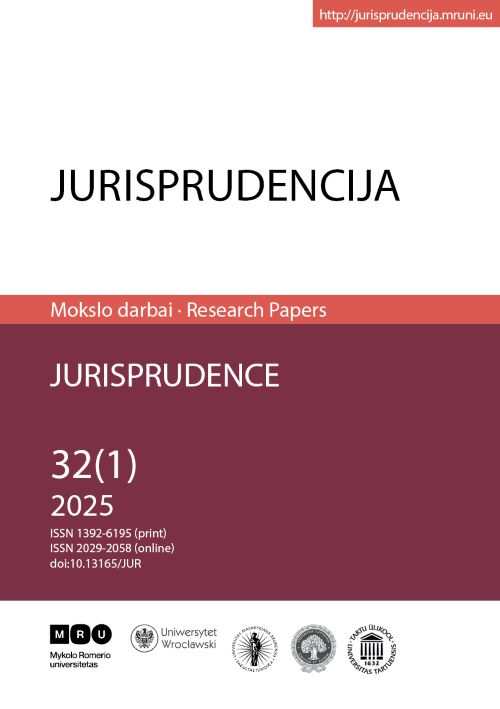UNLAWFUL COLLECTION OF INFORMATION ABOUT A PERSON’S PRIVATE LIFE AS A CRIMINAL ACT: IS THE CONTENT OF CRIMINALIZATION CLEAR?
##plugins.themes.bootstrap3.article.main##
Abstract
This article examines a provision in the Lithuanian Criminal Code that criminalizes the unauthorized collection of information about a person’s private life. The author highlights the issue of legal ambiguity surrounding key elements of this offense, specifically
the subject-matter and act, which leads to inconsistent court practices in such cases. This ambiguity creates a risk of artificially criminalizing minor interpersonal conflicts, deviating from the true purpose of the law – protecting individuals’ private lives from the most serious threats. Furthermore, the legal uncertainty inherent in the norm may also lead to the opposite outcome, where genuinely dangerous methods of collecting private information cannot be effectively prosecuted due to difficulties in establishing their illegality. The article also reviews similar laws in several European countries and proposes ways to clarify the scope of this offense, ensuring it aligns with fundamental principles of criminal law.
Keywords: private life of a person, inlawful collection of information about a person’s private life, dangerousness of a criminal act, principle of legal certainty.
##plugins.themes.bootstrap3.article.details##

This work is licensed under a Creative Commons Attribution 4.0 International License.
This is an open-access journal, which means that all content is freely available without charge to the user or their institution. Users are allowed to read, download, copy, distribute, print, search, or link to the full texts of the articles in this journal without asking prior permission from the publisher or the author. This follows the BOAI definition of open access. Authors contributing to Jurisprudence agree to publish their articles under a Creative Commons Attribution 4.0 International Public (CC BY) License (applicable from 2025).
![]() Authors retain copyright of their work, with first publication rights granted to the Association for Learning Technology.
Authors retain copyright of their work, with first publication rights granted to the Association for Learning Technology.
Please see Copyright and Licence Agreement for further details.







